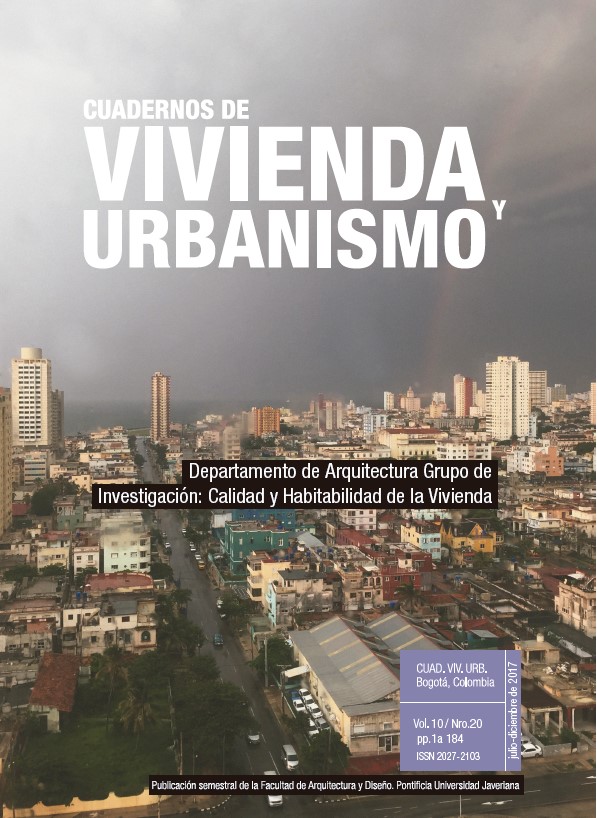Abstract
The concept of common things can show several meanings in diverse cultural contexts, constituting a clear example of polysemy, particularly in the Spanish language. The use of this term is particularly complex in the field of architecture and the urban phenomenon. There are not many places where the common things and its polysemy are perceived more than in the urban public space. This work tries to bring up that polysemy by means of a double reflection from the social and the architectural point of view. The result is that we should not interpret the common things in public space as trivial, but as a formal and effective response that architecture and urbanism can propose to make clearer the social function of urban space, for the sake of its recognition by citizens.
This journal is registered under a Creative Commons Attribution 4.0 International Public License. Thus, this work may be reproduced, distributed, and publicly shared in digital format, as long as the names of the authors and Pontificia Universidad Javeriana are acknowledged. Others are allowed to quote, adapt, transform, auto-archive, republish, and create based on this material, for any purpose (even commercial ones), provided the authorship is duly acknowledged, a link to the original work is provided, and it is specified if changes have been made. Pontificia Universidad Javeriana does not hold the rights of published works and the authors are solely responsible for the contents of their works; they keep the moral, intellectual, privacy, and publicity rights.
Approving the intervention of the work (review, copy-editing, translation, layout) and the following outreach, are granted through an use license and not through an assignment of rights. This means the journal and Pontificia Universidad Javeriana cannot be held responsible for any ethical malpractice by the authors. As a consequence of the protection granted by the use license, the journal is not required to publish recantations or modify information already published, unless the errata stems from the editorial management process. Publishing contents in this journal does not generate royalties for contributors.


